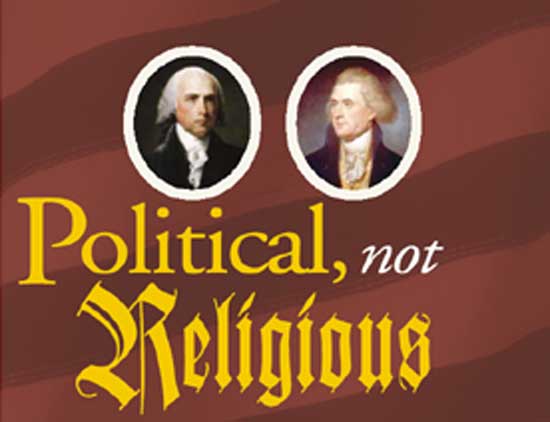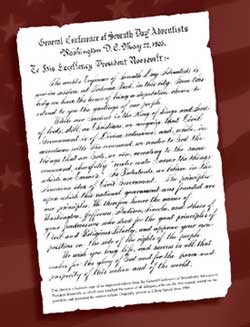Political, not Religious
Edwin S. Gaustad
July/August 2004
During Jefferson's eight-year term in office, and in the ensuing eight-year tenure of James Madison, religion and the churches managed not only to survive but even to multiply on a grand scale. Neither president worried about the growth of religion, but only about maintaining its freedom. For example, in 1802 Jefferson explained in the draft of a public letter why he did not proclaim religious feasts or fasts, as both John Adams and George Washington had done before him. He did not do so, he noted, because in his view the First Amendment prohibited political leaders from acting like religious leaders. Then, after quoting the relevant words of the amendment, he added this crucial phrase: " thus building a wall of separation between church and state." Jefferson's "wall of separation," though found nowhere in the Constitution, by a twist of fate became more familiar to U.S. citizens than the constitutional language itself.
—Church and State in America,
by Edwin S. Gaustad, Oxford University Press, 1999, p. 51.



